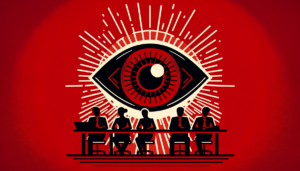Hybrid work demands progressive management to be successful
- 8 Min Read
The debate around hybrid work and whether it is sustainable continues, but research shows that with good management, this model of work can be successful
- Author: Microsoft
- Date published: Nov 16, 2022
- Categories

The final months of the year can often feel most challenging for staff. Nights are drawing in, fatigue from 10 months of hard work is catching up with people, and the Christmas and New Year’s break still feels far off. Plus, a single glance at the news headlines just offers more economic doom and gloom to contend with, heading into 2023.
Perhaps it is not surprising then, that people are feeling the strain, especially middle management who must shoulder the pressures of their teams, as well as their own, while dealing with similar levels of overwhelm or overwork.
Microsoft’s 2022 Work Trend Index Special Report: ‘Hybrid Work Is Just Work. Are We Doing It Wrong?‘ finds nearly half (48%) of employees and more than half (53%) of managers report being burned out at work.
These stresses are being exacerbated by the ongoing transition to hybrid work, and the stigmas that still surround working remotely are also threatening organisational cohesion and unity.
A (hybrid) workplace divided
Microsoft’s most recent Work Trend Index also finds 85% of leaders say the shift to hybrid has made it hard to feel confident that employees are being productive, with the result that only 12% have full confidence their team really is being productive. Meanwhile, 87% of workers report that they’re performing just as they should be.
This disconnect has been called ‘Productivity Paranoia’, and it is not the first workplace rift our research has found. Microsoft’s 2021 Work Trend Index found that while 61% of business leaders felt like they were thriving at work, this figure dropped by nearly a quarter, to just 38% for employees.
There is also the risk of ‘Us Vs Them’ conflicts arising between, for example, back-office staff who can work fully remotely, and those frontline staff whose role demands they operate wholly onsite.
Managing people got harder – has management training got better?
Monitoring, spotting, and responding to these kinds of disconnects is also harder in the hybrid workplace. Instead of being able to maintain a general sense-check of how people are feeling, interacting, and performing by sitting near them, managers now must set up multiple individual calls to check-in and join the dots.
There is also a sense of alignment and shared purpose, not to mention camaraderie that is harder to generate when you are not sharing a table, or lunch!
‘Covid managers’ who have always managed teams in a remote setting may struggle just as much, if they are now back in the office with a large in-person team to look after. Having a full-time role and managing hybrid teams can sometimes feel more like having two jobs, rather than one.
If it is more difficult to manage and delegate to people in a hybrid work environment, then it will be more difficult to train an and upskill them too, for the same reasons. As such, it is a fair question to ask if managers’ own professional learning and development has been invested in sufficiently, given how their role, and what’s being asked of them has evolved.
These challenges are not going to disappear anytime soon, because hybrid work is here to stay; over 70% of workers want flexible remote work options to continue, while over 65% are craving more in-person time with their teams.
So, how can HR leaders resolve this apparent paradox, and find a way to offer staff the best of both worlds?
Seek first to understand…
Gaining feedback from employees about their lived experience of work is a crucial step. Some employers run one-off surveys to gain a sense of employee engagement. This may look like a good idea, especially as Microsoft’s research shows more than half of companies rarely, if ever, collect feedback about their employees’ experience at work.
Yet there are dangers from using disparate point solutions in this way. If employee feedback is not integrated, consistent, or is focused on somewhat arbitrary, top-down-mandated metrics, the piecemeal information can end up making it easier to get the wrong picture, than the right one.
Issues like this are why Microsoft Viva was launched, the first integrated employee experience platform for the hybrid work era, and Microsoft recently announced Viva Pulse. Pulse is a new app that empowers managers and team leads to seek regular and confidential feedback about their team’s experience – right in the flow of work, and privacy, of Microsoft Teams.
Enabling employees to share confidential feedback intuitively and efficiently encourages them to keep doing so on an ongoing basis. Which in turn helps managers stay in touch with the current sentiment of their team and understand any emerging trends.
Ideally, managers should be able to draw insights from quantitative data, as well as qualitative, to support their decision making, which is why Microsoft is bringing the ‘Glint’ solution into Viva next year. Glint blends AI technology and people science to power predictive insights that help HR leaders and managers better understand engagement data.
…Then to be understood
Efficiently capturing a broader range of high-quality employee feedback must become an integral part of how managers engage and develop talent, if HR teams are to make hybrid work, work. But the other half of the feedback loop is equally important: clearly communicated guidance for staff that helps them prioritise and reprioritise their workload.
Having reliable evidence and insights that back up why a manager is sharing a specific piece of feedback with their team will naturally improve clarity. As will having an integrated platform like Microsoft Teams which can keep managers’ communications and other resources like Viva, all in one place.
It is also important to be able to make the connection to a company’s purpose and organisational KPIs and explain how the guidance offered matches up to an individual’s role and responsibilities.
In addition to becoming more evidence based, shifting to become more outcome focused will also help managers strengthen relationships – by showing they trust staff to get the job done. So, instead of tracking inputs such as hours worked, more attention is focused on people-based outputs, which includes project results, as well as employee perspectives. Moving towards this requires employers to let go of control, and empower people to choose how they work, while still providing support when asked for.
Microsoft’s approach: model, coach, care
The role of the manager is one of the most important roles in any organisation, and we use a simple, easily applied framework called ‘Model, Coach, Care’, which has proven to have a lasting impact and help our managers strengthen relationships with their Hybrid teams. It also helps managers protect staff wellbeing and psychological safety – key drivers of employee retention, and support both inclusion and productivity at the same time.
Model.This means to not just talk the talk but walk the walk – managers must model the behaviour they are asking of others. Microsoft looks to managers to be role models of culture and leadership and set the right tone through their words and actions.
Coach. Coaching at Microsoft means empowering employees to be the best version of themselves, leading to higher productivity, engagement, and a sense of purpose. It includes defining a team’s objectives and outcomes, their priority, and the business context. As well as enabling success across boundaries by supporting others across the whole workplace ecosystem, coaching is also about proactively helping teams continually adapt and learn, through positive and constructive feedback that’s made a great deal easier by having access to tools like Viva and Teams.
Care. This means making others feel emotionally included, valued, and cared for – and deliberately encouraging and helping staff to build connections, based on a deep knowledge of their individual capabilities and aspirations. It requires managers to make time to connect and listen, helping each team member align their purpose to the company’s mission, and investing in their growth through guidance and candid performance discussions.
If you would like to learn more about this approach, Microsoft has created a dedicated training course to show HR leaders and managers how it works in more detail, which is available now on the LinkedIn Learning platform.
Retrain managers to succeed in the hybrid world
What has become clear is that we can no longer keep trying to simply replicate in-person work and behaviours into the hybrid model – and that managers need more support if we are to set them up for success.
This includes investing in specialised education and training, that resets what is expected and taught as best practice in multiple areas of hybrid work. From how to onboard and coach people, to other foundational skills, such as leading distributed teams, building individual and organisational resilience, and effective communications for asynchronous working.
If this refreshed approach to professional development can be backed with the provision of the integrated tools and resources needed to empower managers with reliable data and insights, the challenges of hybrid work can be transformed into an organisation’s competitive edge.
Both HR leaders and managers will be able to have full confidence that they’re revitalising the art and science of people management, and that their hybrid workplace is one where all staff, everywhere, get a fair chance to grow and succeed.
You can find out more about how Microsoft Viva can help your organisation by downloading our e-book: Employee Experience eBook | Microsoft Viva








